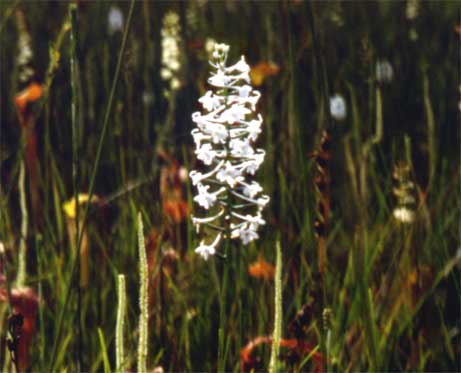

I consider training graduate students a crucial and rewarding part of my academic career. I invest a great deal of time and energy into seeing that my graduate students succeed in their chosen careers.
Before contacting me and before considering applying to the University of Mississippi to study under my guidance, you must meet all of the following basic requirements:
1. You must meet all the minimum requirements of the Graduate School and the Department of Biology.
2. You must have completed at least two courses in Ecology, Evolution, or Environmental Biology and at least one course each in Plant Biology and English Composition.
3. You must have at least a 3.0 (4.0 scale) grade-point average in biology coursework.
4. To pursue a Ph.D. in my lab, you must have a Master of Science degree or at least one publication in a peer-reviewed journal, for which you are the primary author.
Under extraordinary circumstances, I could make an exception to the above requirements. If you meet these basic requirements, then I encourage you to contact me by e-mail or with a personal letter in which you describe your research interests.
My current graduate students are:
Matt Abbott, Ph.D. Where and why is carnivory beneficial in plants?
Sean Moyer, M.S. Can native plant species competitively suppress an invasive grass in a restored oak-hickory forest?
Successful Graduates:
Steve Aquilani, Ph.D. Spring 2002 - Responses of Avian Communities and their Associated Forest Habitats to Recent Prescribed Burning and Long-Term Fire Suppression ( Tallahatchie Experimental Forest Research).
Doug Hohman, M.S. Spring 2004 - Avian Communities and Fire History of Three Climax Upland Communities in Northern Mississippi: Mesophytic Forest, Oak-Pine Forest, and Black Belt Prairie.
Amy Gowe, M.S. Spring 2004 - Phylogeny and Fire-Adaptive Traits of the genus Pityopsis.
Sherry Surrette, Ph. D. Student. Spring 2006 - Environmental Conditions Favoring Plant Diversity in Upland Oak and Oak-Pine Forests in Northern Mississippi.
Sarah Hinman, M.S. Student. Spring 2006 - Causes of Plant Species Losses During a Fire-Free Interval in a Wet Pine Savanna.
View Hune Teoh , M.S. Student. Spring 2009. Phylogeny, Hybridization, and the Evolution of Fire Stimulated Flowering in Pityopsis.
Jason Chesser, Ph.D. Student. Spring 2010. Site Differences in Seedling Establishment and Population Dynamics of a Critically Endangered Pitcher Plant, Sarracenia rubra ssp. alabamensis
Erynn Maynard , M.S. Student. USDA Research Fellow. Fall 2010. Effects of restoration treatments on growth and establishment of warm-season grasses in oak woodlands.
Christine Bertz – Ph.D. Student. 2011. Invasion of hurricane-disturbed scrub communities on barrier islands in Mississippi: A battle between native and non-native ecosystem engineers.
Jeffery Cannon – M.S. 2011. Effects of tornado damage and prescribed burning on sapling growth in an upland oak-shortleaf pine forest
Chase Bailey- M.S. 2015. Negative effects of common mycorrhizal networks and roots on oak seedlings in closed-canopy forests and open woodlands. Co-advised by Jason Hoeksema.